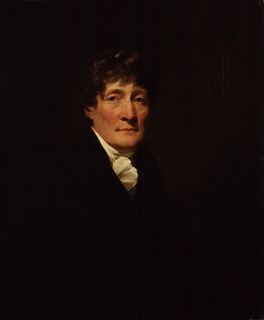A Quote by Anna Brackett
We set up a certain aim, and put ourselves of our own will into the power of a certain current. Once having done that, we find ourselves committed to usages and customs which we had not before fully known, but from which we cannot depart without giving up the end which we have chosen. But we have no right, therefore, to claim that we are under the yoke of necessity. We might as well say that the man whom we see struggling vainly in the current of Niagara could not have helped jumping in.
Quote Topics
Aim
Before
Cannot
Certain
Chosen
Claim
Committed
Could
Current
Customs
Depart
Done
End
Find
Fully
Giving
Giving Up
Had
Having
He Man
Helped
Jumping
Jumping In
Known
Man
Might
Necessity
Niagara
Once
Our
Ourselves
Own
Power
Put
Right
Say
See
Set
Struggling
Therefore
Up
We Cannot
Well
Which
Whom
Will
Without
Yoke
Related Quotes
It is certain that success naturally confirms in us a favourable opinion of our own abilities. Scarce any man is willing to allot to accident, friendship, and a thousand causes, which concur in every event without human contrivance or interposition, the part which they may justly claim in his advancement. We rate ourselves by our fortune rather than our virtues, and exorbitant claims are quickly produced by imaginary merit.
Quite often, as life goes on, when we feel completely secure as we go on our way, we suddenly notice that we are trapped in error, that we have allowed ourselves to be taken in by individuals, by objects, have dreamt up an affinity with them which immediately vanishes before our waking eye; and yet we cannot tear ourselves away, held fast by some power that seems incomprehensible to us. Sometimes, however, we become fully aware and realize that error as well as truth can move and spur us on to action.
There is a powerful craving in most of us to see ourselves as instruments in the hands of others and thus free ourselves from the responsibility for acts which are prompted by our own questionable inclinations and impulses. Both the strong and the weak grasp at this alibi. The latter hide their malevolence under the virtue of obedience: they acted dishonorably because they had to obey orders. The strong, too, claim absolution by proclaiming themselves the chosen instrument of a higher power -- God, history, fate, nation, or humanity.
In overlooking, denying, evading this complexity--which is nothing more than the disquieting complexity of ourselves--we are diminished and we perish; only within this web of ambiguity, paradox, this hunger, danger, darkness, can we find at once ourselves and the power that will free us from ourselves. It is this power of revelation that is the business of the novelist, this journey toward a more vast reality which must take precedence over other claims.
The number of the fixed stars which observers have been able to see without artificial powers of sight up to this day can be counted. It is therefore decidedly a great feat to add to their number, and to set distinctly before the eyes other stars in myriads, which have never been seen before, and which surpass the old, previously known stars in number more than ten times.
There are no limitations set by this electric universe upon any man's multiplication power. Each man sets his own limitations in accordance with his desires. He be a thin wire which gathers little energy and carries a weak current, or he may be a heavy one. That is true of all energy borrowed from the universe by all of us. It is there in unlimited quantities, but the gauge of the kind of wire each of us is set by ourselves.
Indeed, I have observed one ingredient, somewhat necessary in a man’s composition towards happiness, which people of feeling would do well to acquire; a certain respect for the follies of mankind: for there are so many fools whom the opinion of the world entitles to regard, whom accident has placed in heights of which they are unworthy, that he who cannot restrain his contempt or indignation at the sight will be too often quarrelling with the disposal of things to relish that share which is allotted to himself.
The process of growth is, it seems, the art of falling down. Growth is measured by the gentleness and awareness with which we once again pick ourselves up, the lightness with which we dust ourselves off, the openness with which we continue and take the next unknown step, beyond our edge, beyond our holding, into the remarkable mystery of being.
Another discovery which came out of my investigation was the fact that when one gives his or her order to produce a definite result and stands by that order, it seems to have the effect of giving one what might be termed a second sight which enables him or her to see right through ordinary problems. What this power is I cannot say; all I know is that it exists and it becomes available only when one is in that state of mind in which he or she knows exactly what one wants and is fully determined not to quit until he or she finds it.
Thirdly, the supreme power cannot take from any man any part of his property without his own consent: for the preservation of property being the end of government, and that for which men enter into society, it necessarily supposes and requires, that the people should have property, without which they must be supposed to lose that, by entering into society, which was the end for which they entered into it; too gross an absurdity for any man to own.































